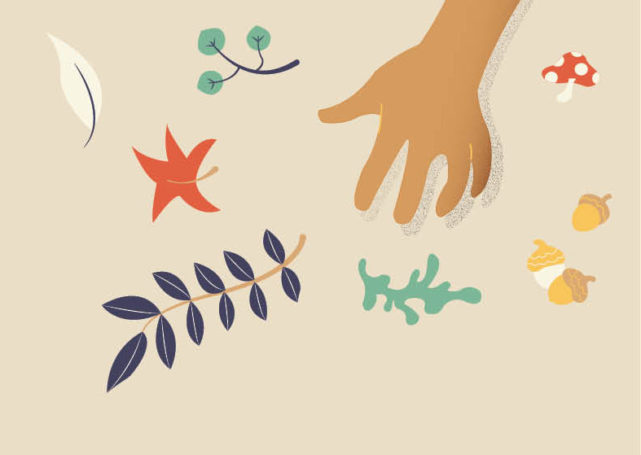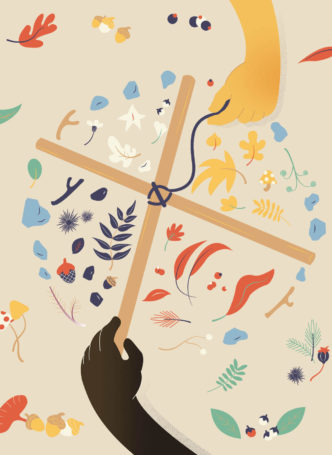March 10, 2022
A new program brings together Indigenous teachings and outdoor education
Within the Indigenous worldview, people subscribe to a holistic view of education and wellness, demonstrated through the medicine wheel. This circle represents directions, seasons and even phases of life. It also teaches the need for balance in all four directions.
Land-based learning is about connecting people to their environment. A new program in Edmonton is being developed that merges Indigenous knowledge and international learning standards, all at the local level.
Inspired by Elders, traditional knowledge systems, ceremonies and land-based practices, Jodi Calahoo- Stonehouse says the kâmiyowâpikwanît, which translates in English to “beautiful flower,” is a program that supports “moms, dads, and students. For this reason, it should also include Elders, social workers and psychologists.”

Calahoo-Stonehouse is the executive director of the Yellowhead Indigenous Education Foundation (YIEF). It is using a grant from Edmonton Community Foundation to develop a land-based language and culture program. Calahoo-Stonehouse says the YIEF is looking to officially launch the program in September 2023. The land-based programming will align with the Alberta provincial school curriculum outcomes and is designed with the help of consultant Tiffany Smith, who developed a similar program in Iqaluit.
“This project plants a seed,” says Calahoo-Stonehouse.
There will also be a launch of summer programming focused on family activities. The first program will be developed in Cree and English, with plans to expand to include Nakota-Sioux and Anishinaabe languages.
Land-based learning was a way of life for Indigenous people. Outdoor education focuses on sensory development, physical skills and confidence. Similar programs have been around for a long time in other parts of the world, such as Europe.
Sometimes known as forest schools, these programs build on children’s interest and Indigenous knowledge. Calahoo-Stonehouse says connecting to the land is crucial for young people and families. “We need to learn how to engage on the land so we are living relationally, whether that is growing horizontal or vertical gardens or learning about water purification,” she says.
The Forest School Association in the United Kingdom describes the programs as “a long-term program that supports play, exploration and supported risk taking. It develops confidence and self esteem through learner-inspired, hands-on experiences in a natural setting.”
As forest schools become increasingly common in Canada, organizations including the YIEF ensure Indigenous teaching methods are at the centre of their curriculum development.

“COVID-19 taught us we need to be outside for our health and the importance of thinking about our relationship with animals,” says Calahoo-Stonehouse. “We are always learning how to co-exist with the land.”
This program is developed with the Indigenous worldview, but is open to Indigenous and non-Indigenous people.
“This is a part of fulfilling our treaty responsibilities,” says Calahoo-Stonehouse.
Canada’s Truth and Reconciliation Commission released its findings in 2015. This program can assist in meeting some of the 94 calls to action from the report, including the call for federal, provincial, territorial and Indigenous governments to develop culturally appropriate early childhood programs for Indigenous families. Calahoo-Stonehouse says that this focus on land-based teachings is a natural next step. “We are preparing the action plan to move the healing path forward.”
The YIEF is creating a website with a registration portal.
This story comes from the Spring 2022 edition of Legacy in Action. Read the full magazine.